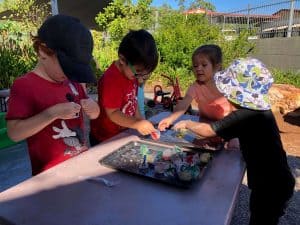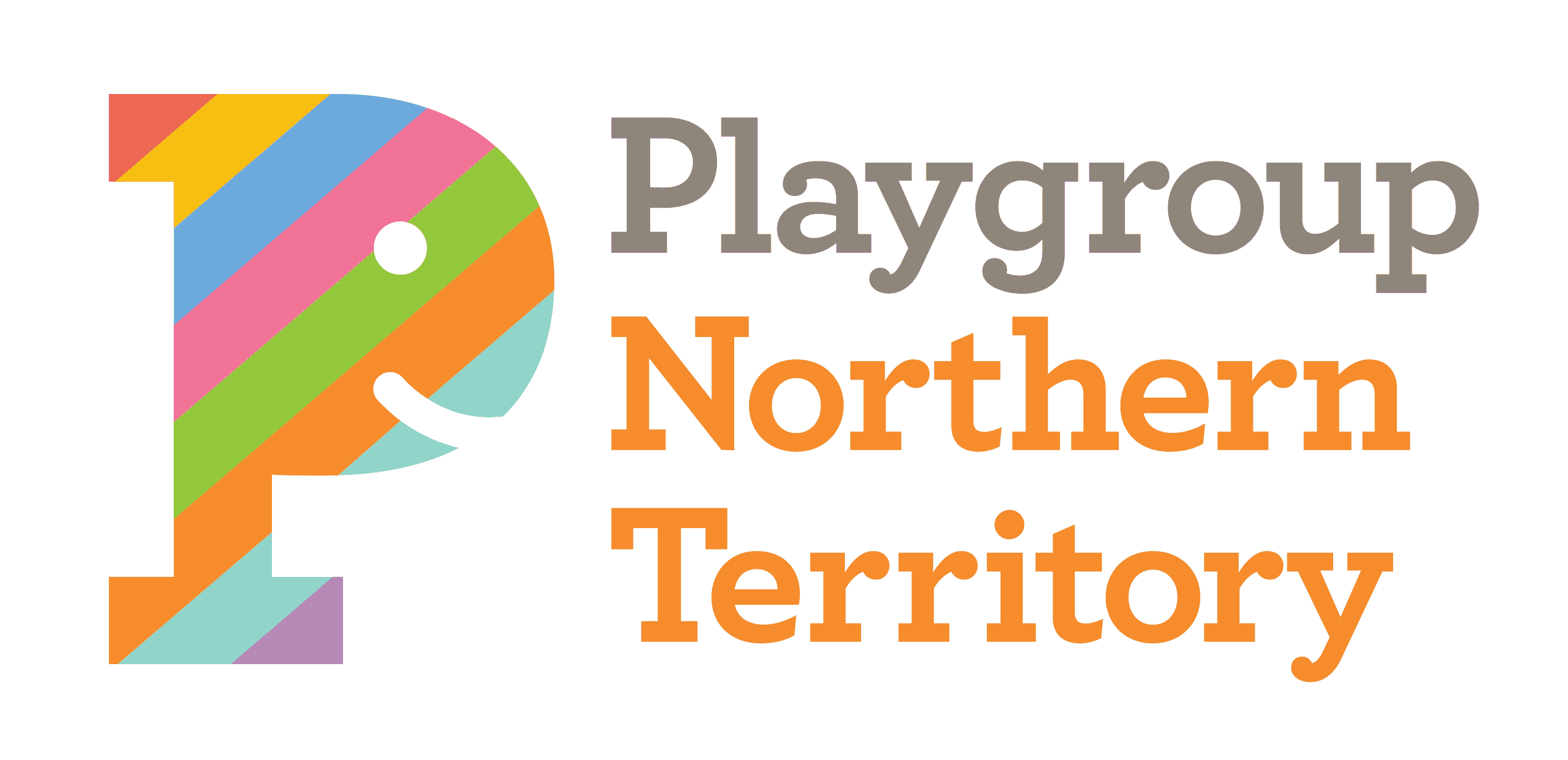About Playgroups



What are playgroups?
Playgroups are relaxed sessions where parents, caregivers and children can socialise and learn through play in a fun environment. They are a service for children and babies between the ages of 0-5 years (0-6 years for some playgroups) and play an important role in getting children ready for school. Playgroups are different from other children’s services because they support the entire family and/or caregivers to grow and learn. Playgroups are a great way to make sure that children are developing strong social, language and motor skills and that parents and caregivers have the support they need for their family to flourish. Many families choose to attend more than one playgroup per week, and once you are a member with Playgroup NT there is no limit to the number of sessions you can attend.
What is the difference between a community playgroup and a supported playgroup?
Community playgroups are informal groups led by volunteer parents or caregivers. Playgroup NT assists by providing resources, affiliation and help with venue sourcing. Community playgroups often focus on a particular suburb or area, so they are a great way to get to know other local families and build a strong support network. They also might focus on a specific interest group, such as Steiner education, German language, or newborn-only groups.
Supported playgroups are more structured, routine-driven groups that are run by Playgroup NT employees. They focus on specific needs, such as helping families living with depression and/or anxiety (Frangipani Friends), families who are Culturally and Linguistically Diverse (CALD) or Defence families (Defence Dandelions) to find a strong network of supportive peers. Families experiencing autism or autism-like characteristics can attend our PlayConnect sessions. Staff at supported playgroups are able to direct families to other services if they express a need for further support.
What happens at playgroup?
A wide range of activities and experiences are available at playgroup. Children can choose the activities that they would like to participate in, enabling them to socialise and learn through play according to their individual needs and developmental pace. Parents and caregivers remain throughout the playgroup in order to interact with other adults and guide and play with the children. Activities at playgroup include music and singing, stories, outdoor play (bikes, sandpit etc.), messy play (water, “slime”, bubbles), sensory play (nature as craft etc.), arts and crafts and puzzles. Activities like face painting and bouncy castles are often featured at supported playgroups to celebrate the end of the term. Families bring packed morning or afternoon tea. Playgroups run for 2 hours on average and families are welcome to arrive and leave freely.
Why are playgroups beneficial?
Children benefit from playgroup because they can participate in new experiences, make friends, improve their communication skills and become school-ready by following simple routines and learning how to share and cooperate. Adults benefit because they can develop friendships with other families, relax and talk in a friendly, non-judgemental environment, share experiences and ideas, bond with their children and take up opportunities for personal development if they choose to help run a playgroup.



